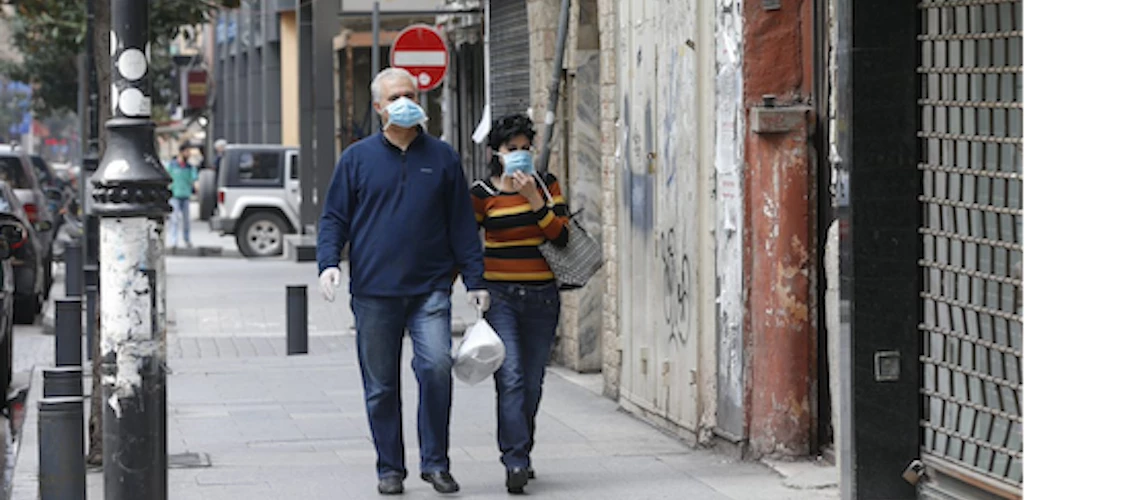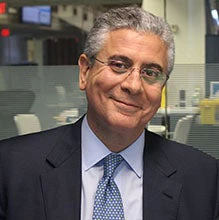 La solidarité est l’arme la plus puissante contre la souffrance humaine.
La solidarité est l’arme la plus puissante contre la souffrance humaine.
The sweeping challenges of the COVID-19 pandemic are testing the world’s collective resolve. First, travel restrictions grounded many of us; now, countries around the world are imposing social distancing measures. These actions are critical to arresting the pandemic, but they are also bringing severe disruptions to economic activity that will need to be offset by stimulus and social protection measures.
These are troubling times. But the World Bank stands ready — especially during the most difficult moments — to respond to the needs of our client countries. In the Middle East and North Africa (MENA), this support will build on seven decades of partnership with the people of the region.
There is a phenomenon I have experienced over many years of working in MENA. Tragedies — whether natural or man-made — have a tendency to bring people together. Human solidarity is the most powerful defense against human suffering. Just one example: For years now, Jordan and Lebanon have provided a global public good by hosting millions of Syrian refugees. As the World Bank’s regional director based in Beirut for several years, I witnessed first-hand the generosity of governments and communities, many of which already faced long-standing development challenges.
But there is a tragic irony to the COVID-19 pandemic. To protect others and ourselves, we must remain physically apart. Epidemiologists and public health experts tell us that social distancing is critical to preventing the spread of the disease. Heeding such advice, governments around the globe have imposed curfews, ordered quarantines, and required people to remain at home.
Across the region, however, separation from fellow human beings has not diminished the bonds of humanity. We are seeing scores of stories of people uniting, any way they can, to alleviate the health and economic suffering from the pandemic.
Religious leaders are opening shrines to use as places of quarantine for those who have no homes.
In Lebanon, a youth initiative called "My Shoulder with Your Shoulder" is forming a safety net to support people whose livelihoods are threatened; a youth campaign in Egypt is distributing sanitizers and cleaning materials; and Iraqi students are volunteering to help educate people about how to protect themselves from the virus. In Jordan, telecom companies are offering free internet service to students whose schools are closed.
People are donating food baskets and delivering aid in sterile boxes. And a father in the West Bank donated food from his son’s canceled wedding to poor people who are quarantined.
There are even reports that 150 workers — mostly women — volunteered to isolate themselves at a factory in central Tunisia that produces most of the country’s medical protective gear. With enough food and supplies to last a month, they said that they will keep producing masks, sterile suits, and other equipment that health workers need to fight the virus.
These acts of human solidarity inspire us as we work to prevent suffering from the pandemic. For the World Bank, that means rising to the challenge posed by COVID-19 and partnering closely with our client countries on immediate help. As countries undertake drastic measures to contain the crisis and combat its worst social and economic effects, they are looking to us for urgent financial assistance, as well as our unmatched global expertise in dealing with crises, no matter how broad or unprecedented.
We are activating emergency response components and allocating funds from existing projects. And we are funding new efforts under a groundbreaking global Multiphase Programmatic Approach to help address the most urgent medical needs, such as procuring ventilators, hospital beds, and Personal Protective Equipment (PPEs); hiring and training medical personnel and testing devices; and isolation and case management for those who contract COVID-19. As World Bank Group President David Malpass explained in a LinkedIn essay last week, the new Fast-Track COVID-19 Facility will inject $14 billion of emergency financing for immediate responses to the pandemic.
The first wave of support under the new facility will help two of the poorest countries in the region, Djibouti and Yemen. Other countries have received immediate support through restructuring existing projects to help address their critical medical needs. We are focused on helping save lives and slow the spread of the disease.
Through further engagements, the World Bank will help countries in the region shorten the time to economic recovery, create conditions for growth, support small and medium-size businesses, and protect the poorest and most vulnerable. On March 26, President Malpass told G20 leaders that the World Bank Group, including IFC and MIGA, could deploy as much as $160 billion in financial support over the next 15 months to help countries impacted by the pandemic.
The COVID-19 pandemic is likely to be the most challenging public health crisis of our lifetime. Yet across the region, people are finding new ways to harness their common humanity, even as confronting the virus keeps them physically apart. As we rise to this challenge, we will follow their example, work together to combat the pandemic, and build stronger, enduring bonds of human solidarity.


Join the Conversation